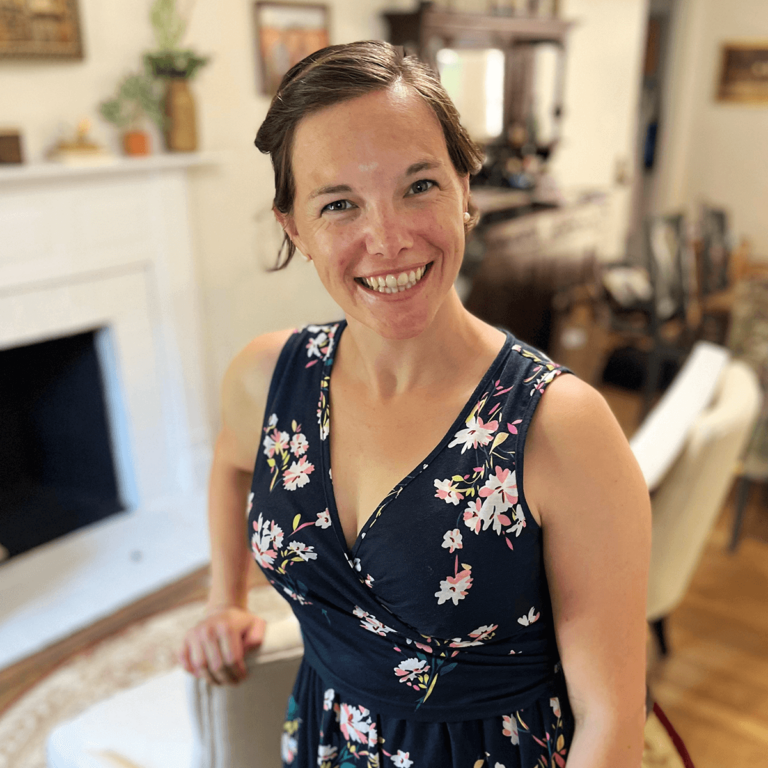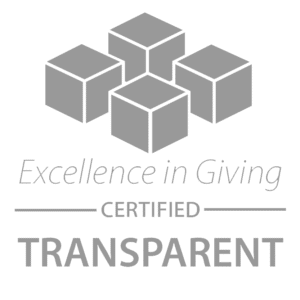For additional resources on this subject, Jessica recommends:
understood.org
pacer.org
readingrockets.org
schoolchoiceweek.com, Article: How to Continue Your IEP, Even if You Start Homeschooling
spedhomeschool.com
wrightslaw.com
You are listening to Together by AGCI. I’m Melissa Rush. Today, we’re chatting with Jessica Monteverde, a special education coach. Jessica has a master’s in education and classroom experience as well as experience working with parents and professionals navigating IEPs for the children in their care. Let’s get into our conversation.
Well, we are so excited to welcome Jessica to the podcast. Thank you for making the time to chat with us today. Sure, my pleasure. Can you start by telling us a little bit about yourself and your background as a special education coach? Sure. So my career started out as a special education teacher. I taught in a collaborative setting for kindergarten through fourth grade, and then I’ve also taught in a self-contained classroom, also at the elementary level. And then life got a little crazy. I married a guy in the Air Force, and we moved overseas. We had a baby, then we had another baby. We moved back, we had another baby. So, we have three little girls now. And with the constant movement and having little ones at home, it was just best for me to stay at home with them. So now I’m working to support families through the special education process as an IEP coach and just helping them navigate the overwhelming process and helping them navigate for their children. That’s really awesome. And yeah, it sounds like you’re very busy.
For people who are new to this, can you just kind of explain what an IEP is and how it can help kids with disabilities? Sure. So an IEP stands for an individualized education plan. So an IEP team, so that could consist of like school psychologist, administrator, counselors, therapists, general education teachers, special education teachers and parents. And once they come together, they base everything on data, make decisions about a child qualifying for special ed. And that just means that they feel that the child’s disability is impeding their educational path or their success in education. So then they put together an IEP. So this plan is individualized. One IEP should never look like another IEP. It is written specifically to the child. And what I really love about special ed is that we take into consideration the entire child. So the whole child is assessed, and we look at their academics, their social functioning levels, their behavior, their independent functioning, like tying shoes, getting to the bathroom, following a schedule, staying organized. And then based on that data they create annual goals that the child is supposed to be working on throughout this school year. And then another part of it is accommodations, which are tools that children use in the class actually throughout the, their whole school day to help them be successful. And those tools can be academic, behavioral, or functional.
And then the IEP also states the special education services that the child will be provided. And that’s a wide range. It could be that they’re in a special ed room all day long because that’s how extreme their needs, are and they just really need in individualized instruction and care. Or it could be that they meet with a special ed teacher like for 30 minutes a week, and they’re in a gen ed classroom using accommodations for the majority of their time. So it’s kind of, it is very individualized but it really is meant to meet the needs of the child. Yeah, thank you for explaining that. It’s great to hear that it is so individualized. It kind of makes me wonder why we don’t have that for every kid, no matter their abilities, right? Because everyone’s different. Yes. So you know, obviously navigating disabilities and advocating for your, your kid, you know, like within the school system can feel overwhelming. Particularly if you’re, you know, kind of just dealing with some diagnoses and figuring out how to navigate that can, how do you recommend that parents start? Like if you’re just kind of like, okay, I found out my kid is, you know, dealing with this and what do I do? So number one, I would say know your child and know that your expertise when it comes to your child is extremely important.
No, no one else in the world knows your child better than you do as a parent. And so latch onto that and know that whatever you can bring to the table is very important. And then ask questions I think is the big one. So as a parent with a child with a disability, you are an equal member of that IEP team. And you have to kind of do the groundwork to get there to be more than like the administrators or the teachers are just kind of presenting to you. Like really owning the fact that you are an equal member, you deserve all the information beforehand and that your input should be written into that paperwork as well. So I just start by like asking questions and even if it’s like I am so confused, I don’t know where to start, can you please help me through? Cuz every district is a little different as well. Every school functions a little different. Just saying like, I don’t, I’m overwhelmed, I don’t know where to start. Can you please let you know, guide me in the right direction. And then if you’re still confused, ask follow up questions. Because the more you’re asking, the more you’re getting information, the more they’re respecting your role at the table as well because they’re like, oh this person wants to be engaged, and they want to make a difference for their child.
So we’re gonna include them as much as possible. And eventually it’ll get to the point where they just know you want the information and you’re not having to ask over and over again. So that’s, that would be my recommendation is when you first hit the ground running, know that what you’ve come to the table with is really important and ask questions. Just yeah, get as much information as you can. That’s really good advice cuz I think sometimes you can feel like, oh there’s all these experts, and I don’t know what I am talking about, but like you said, you are the expert on your child, and ultimately you’re gonna be the one that’s making those decisions, and everything else is a suggestion. So you can, you don’t have to do the, you know, even if it’s the expert of whatever, you don’t have to do what they’re suggesting. You’re gonna know what’s best for your kid, right. So yes, absolutely. I think there’s a definitely a difference between blind trust and building a trusting relationship. So just going in and believing that this team is doing the best that they can isn’t, and if you feel off at like in your gut as a parent, you know, build, taking the steps to build a trusting relationship is so much better than just assuming that the team is doing what everything they can for your child. Absolutely.
Not to say that they aren’t doing everything that they can, but Correct, correct. Just you know, there are some amazing teams out there. Yeah, absolutely. So you know, as you know AGCI, you know, one of the things that we do is, is help kids come home to their families. And so for families who have adopted internationally, especially older kids, like a language barrier can kind of present some unique challenges like particularly in a school environment, you know, what are some of the best ways for families to advocate for kids for, you know, if English is their second language? Sure. So English is a second language and special education services are two different entities. So I just don’t want parents to assume that they should be receiving special education services. Absolutely. Because English as a second language is something that the special ed team takes into consideration. And if your child is behind either academically or behaviorally, they have to consider is it because there’s this big language barrier and they’re not understanding the routine. So there’s some frustration maybe being displayed in behavior issues or academically they’re not performing as well because of the language barrier.
So number one, if you’re concerned and you think there might be a disability component, make sure that when they’re doing the testing through the school, that they are assessed in their first language so that you’re getting hard data on really what they’re, how they’re performing and not on like, well there’s this, there’s this language barrier. Yeah. So obviously they’re not gonna perform as well. The second thing is if they, if they don’t qualify for special education, because if they, if they do qualify, then they’re gonna be taken care of and they’re gonna get what they need through the special ed program. However, if they’re like, this is really truly a language issue, then that will fall under like an English language learner program or an E S L program. In Texas, the way they do it is a child has to be assessed through a language proficiency assessment committee called an LPAC. And they assess the child on their listening, speaking, reading and writing. Like those four components are what you learn about when you’re acquiring language. Those are the four components of language. And then based on that assessment is what accommodations they’re given for testing and in the classroom. So testing’s a really big one, especially if your child’s in a public school because they’re using that data to drive a whole bunch of other things.
So you really wanna make sure that your child is receiving all the accommodations possible when they’re in a testing environment just cuz it’s like an anxie high anxiety situation as well. So making them as comfortable and as and successful as possible. And then in the classroom they can also receive accommodations so that they are more successful academically or behaviorally. So if, if a school for some reason is like shutting a parent down or they don’t feel like that’s an issue, I would say well they need to be acce, they, we need to be assessing that for English language learner program and hopefully the school will kind of take it from there. Yeah, I’m so glad you that you also mentioned that it’s important not to look at that as obviously a disability. You know, if your kid doesn doesn’t, you know, and, and it can, if there’s maybe things that they’re struggling with like just understanding that okay, they’re on top of everything else, they’re also learning an entirely new language. Right? Yeah. So I think it’s really important to have them assessed in their first language. Yes. So just in your experience, what is the biggest misconception that parents have about, you know, the education system and the opportunities that are available for their kids? I think the biggest misconception is that I think school districts get really comfy and schools get really comfy in the way they do things.
And I, I heard a lot even having to switch schools, I’m like, this is weird, I did it differently and this other school, they’re like, well we do it this way or we don’t do that here. And that’s not really true. It’s not based on any sort of data, it’s not based on federal law or state law, it’s just how we do things. Sure. And I think that’s the, the biggest misconception as well as like the lack of opportunity given to our kids when we’re not willing to look outside the box and be creative about how we’re gonna support this child. Special ed is all about individual unique education and being shut down with, we don’t, we don’t do that here is really challenging. And I think that’s where like the blind trust kind of comes in because as a parent I would be like, okay well they don’t do that. Yeah. And I, I would just accept that. Sure. Yeah. But I think being able to kind of push back on the norms in a respectful manner and problem solve to a point where you’re like, well my child needs something a little bit different is where we can really bring about positive change. Yeah. Yeah that’s a good point. This is kind of sim in a similar vein, but like what are, what’s another, you know, challenge that families face you think when navigating this system?
I think just understanding the process overall and the special ed jargon. And as educators we often forget that this is our expertise. Like we’re just in it so much. Kind of like when you go to the doctor and they’re like talking a million miles of an hour at you and you’re like, I caught the first five words you said, can you please talk to me like a human being. I think as educators we kind of do that. We’re just like, well obviously and we throw like special ed is it has acronyms all over the place and we forget that the person who’s sitting next to us doesn’t have the same background. So taking the time to really help a parent understand what the paperwork says because it’s like paperwork that parents are given and you just don’t have the time or bandwidth to go through all that to really understand it. And then I think really being treated and seen as an equal member of the IEP team. So often I think parents are, they come to an I IEP meeting where you’re meant to be an expert on your child and you’re really just presented paperwork. Yeah. And maybe they say like, does that sound okay to you? Or like, what, what are you concerned with? And you might give them a sentence and that’s it.
So you’re not really an active participant in the team and I think we really need to shift that past parents being presented information and then us value as educators valuing their input. And then I think there’s just such this, especially right now, this barrier I think from both sides of the table, like parents in schools are just kind of pushing against one another. Yeah. I feel like something happens and then it’s immediately like we’re like who’s gonna win? Like we need to team kind of move past that to collaborate for the child as opposed to like, well I’m definitely gonna win this one or we’re gonna shut the parent down on this or well we’re gonna get all this data to throw in their face. Or a parent, you know, instead of having a conversation with the teacher, they go and complain to the district. Like there’s not, yeah, we’re not do doing the hard work of collaborating at the, the lower level to solve these problems that could easily be solved by a team coming together and not finger pointing. So just trying to be as respectful as possible, appreciating the work that a teacher is doing and the team’s doing. Cuz it’s very hard work. I mean not only are they trying to do the best for your child, they also are trying to do the best for every other student that they see.
So just knowing that they are doing the hard work on the ground and coming together to hopefully put supports in place for your child to make them successful. Yeah. And that is such a shame because really everyone should be, and I think ultimately is on the same team, but viewing Yes. I, yeah, I think you’re totally right. Like having more of a collaborative approach versus like a us versus them mentality. Right. You know? Yes. Yeah. Because everyone’s really there for the same re you know, like the people that go into that line of work, like care about kids want your kids to be successful. Obviously as a parent you want your child to be successful so it’s like how can we all work together and make it work, right? Yes. Yes. So for families that homeschool their children are the, what special education supports are available? Okay, so this is a little, it really depends on where you live. So some states take their special education funding and they will kind of deviate it out to homeschooling families if they consider homeschooling to be private school. Like if the, if they put homeschooling in under the umbrella of private schoolers then you can seek therapies and that special education like academic time through the school district without any charge, like for free. They would still get their speech therapy, ot, physical therapy, reading intervention, whatever your child needs that the state would still cover that.
However, there are states where they don’t provide any sort of funding for homeschoolers and that’s kind of on your own. If you live in a state like that, then I’d recommend maybe seeking seeing if your insurance would cover therapy and then reach out into the community. There are like autism spectrum disorder support groups. There are a D H D support groups, down syndrome support groups. And I think those networks would probably have a good idea of how to navigate homeschooling with the special education needs. I did find a couple of articles online that are pretty helpful. There’s a school choice article that has it broken down at the 50 states so you can just click on your state and then you can know what kind of funding you can get based on what state you’re in. And then there’s a new program, I think it’s, it’s pretty new cuz it was after Covid that they were noticing this big influx of parishes continuing to homeschool their kids. And that website is sped homeschool.com and it has a lot of great resources as well. So that’s a, that’s all I can really speak to homeschooling, but it is such a great option for families. Yeah. Well thank you.
So it sounds like it’s obviously very dependent on where you live, so maybe as you’re kind of navigating, if that’s, you know, the route you wanna go for your family, definitely look into what the rules are in your state and you know what kind of resources you’re going to need access to and use that you know when you’re making your decision. Yes. Well you just listed off a few great resources, but are there any additional resources that you can recommend for families? Sure. So a couple of books that I own are rights law. He, they do work on special education law and they have a couple of books that really break down special education law in like layman’s terms. And then they also have a book that’s for advocacy going from emotions to truly advocating for your child. So those are two great books. You could even get those like off of half price books and stuff. So it’s not, they’ve been around for a while. A couple of websites that I’d highly recommend are understood.org. That’s a great resource for parents. Their search through their website is awesome. If you just put in like literally exactly what you’re looking for, it usually comes up with like three different articles. Articles. That’s great. So I just used theirs for like, I was doing a thing on surviving the holidays and just the changes and routines with your children.
And so I put like surviving the holidays and so their search bar and I got like 10 different articles on like what parent, other parents recommend five tips for like surviving holidays with adhd. There was another one for autism. So it gives a lot of great resources for parents. Another option is reading rockets.org. It’s a little more academically geared but if your child’s struggling with reading, it gives a lot of great information on why they’re struggling. Like what’s happening in the brain. Not like to a extent that you wanna understand very like layman’s term, like this is what’s happening, there’s a disconnect here and here are some supports you can use or this is how when you’re doing reading at night with your seven year old, these are some things you can do to make that a little bit more enjoyable and to help them through that process. And then pacer.org is a parent, like it’s, I wanna say center, but it’s basically this like mega house of resources for parents with special needs children. It has, it’s like a national organization and it provides a lot of great information. They even have like webinars and workshops and stuff. So if you’re really trying to educate yourself about like a certain disability or how to help them, there are workshops and stuff on that site, so. Awesome. Well thank you so much Jessica. It was such a pleasure to talk to you and thank you for sharing your wisdom with us. Thank you for having me.
That was special education coach Jessica Monteverde. Thanks for listening to Together by AGCI. As always, if you liked what you heard, please rate or review us wherever you listen to podcasts. If you’d like to read or watch even more stories, check out our website, allgodschildren.org. Reach out to us and let us know what you think on Instagram @allgodschildreninternational or email us at together@allgodschildren.org. We look forward to sharing another story of hope the next time we’re together. Talk to you soon.











